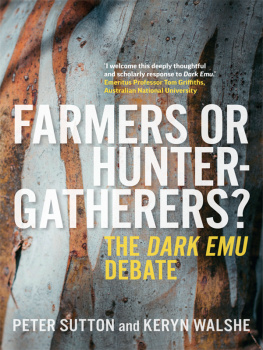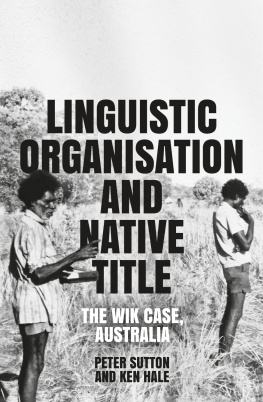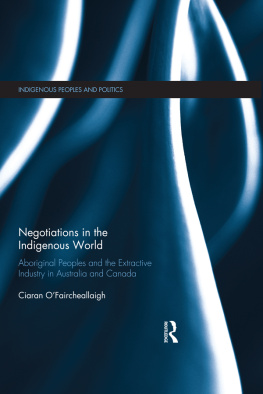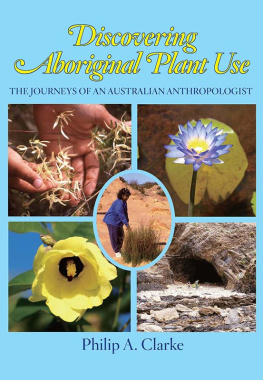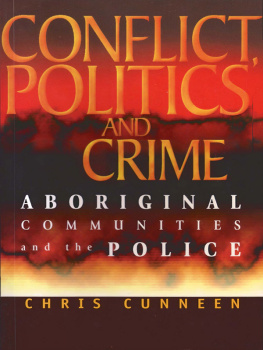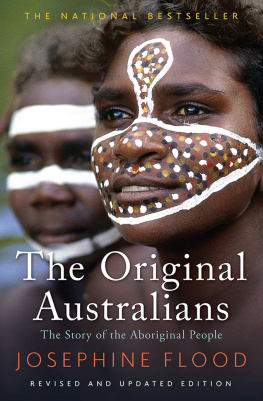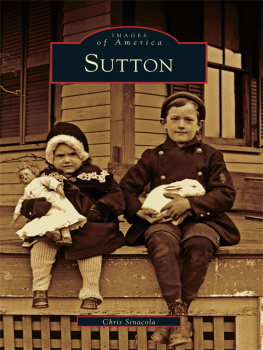Foreword
Marcia Langton
On 23 September 2000, Peter Sutton, a dedicated and internationally known Australian linguist and anthropologist, delivered The Politics of Suffering, the Inaugural Berndt Foundation Biennial Lecture. Due to the authority of thirty years of professional experience and the insiders knowledge which he brought to the occasion, the address was, by turns, incandescent, emotional, tragic and challenging. He threw the gauntlet down and asked Australians to reconsider the contrast between progressivist public rhetoric about empowerment and self-determination and the raw evidence of a disastrous failure in major aspects of Australian Aboriginal affairs policy since the early 1970s. He challenged the people who hold to these views to confront this evidence, which, he said, is now frightening. He detailed his own observations and analysis, accrued over three decades, while engaging with Aboriginal societies across much of the continent, recording Aboriginal languages, describing Aboriginal social organisation and changing land tenure systems, and documenting significant places, art, cultural landscapes and ethnobotany.
Peter had good reason to spell out his concerns as he did. His close friends at Aurukun had died prematurely, and it was clear to me, and had been for some time, that the constant death and tragedy had caught up with him, as it had with most of us working on the front line. His legendary state of calmness and his curious, amused visage as he watched eventssome of us called him Dr Zenhad been replaced by sadness and a worried, hesitant caution.
In 1973, he began a relationship with a Wik group near the Aurukun Mission in western Cape York that has continued until the present. During those heady days when Premier Bjelke-Petersen ruled the polity of Queensland with a network of treacherous agents who reported on all matters Aboriginal as if they were the enemy within, Professor Sutton worked with his Wik colleagues to build airstrips and the rudimentary modern shelters at the outstation settlements, established to enable people to escape the tension and tedium of the mission settlement at Aurukun and live on their ancestral estates where the bounty of nature was their right. Like others who worked with Aboriginal people, he was the subject of the reports to Dr Pat Killoran, the man at the centre of the draconian system of control that still in the 1970s kept Aboriginal people in administered communities and reserves. In this bookthe title taken from the incandescent lecture already mentioned, delivered in Perth to the annual conference of the Australian Anthropological Society in 2000 at the University of Western AustraliaProfessor Sutton examines in greater detail the life of his compatriots in the Aboriginal world during those decades and the history of ideas which they informed, however unwittingly.
Aurukun was transformed, he tells us, from a once liveable and vibrant community, as I had first experienced it, to a disaster zone. Such honesty in the vicious world of Aboriginal politics is rare, and coming as it does from a respected white professional with a distinguished record of impartial observation, it is a powerful corrective to the romantic, misinformed fabulations about Aborigines as a special kind of modern noble savage. His original and breathtaking insights are a boon to those of us who have witnessed the loss of dignity, independence and grand ritual eventsonce the norm, despite the sometimes heavy hand of missionaries, police, and Killorans agents. Whereas once the elders were respected because of their adherence to the harsh discipline of the old ways of their ancestors, now their lives are just plain harsh, their disciplined ways largely replaced by the libertarianism of the new life in the communities with welfare cheques, alcohol, drugs, popular music and Western ideas. He admits that there are some happy, healthy Aboriginal communities, and families that defy the odds, in remote Australia, but too many are places of the kind of tragedy that turned him from dry observation to the engaged argumentation that we find here in this book.
Land justice was the outstanding issue for Indigenous Australians in the twentieth century, and rightly so. But justice, when it did come for a lucky few with a cultural repertoire that would convince the judiciary, came with a price tagthe loss of opportunities to develop economically and modernise Aboriginal institutions that were no longer effective. The quarantining of the newly won lands from modernisation was the outcome of the policies which Professor Sutton dissects here. There are few who contributed as much as Professor Sutton did to the efforts for land justice. He was a tireless worker, and his ethnography and expert submissions to the land claim and native title hearings set the highest benchmark of professionalism. I was fortunate to work with Professor Sutton from time to time in the early 1990s when he was the expert anthropologist advising Aboriginal groups involved in land matters in eastern Cape York Peninsula. These were formative experiences for me, and there are passages in this book that take me back to those exciting but difficult times, working on land rights projects, when he talked about the history of people and places. His unadorned accounts of the post-frontier Aboriginal world would cause me to stop and contemplate my duty with a fresh perspective, drawing together my own childhood memories and his startling correctives of the then fashionable progressivist views on Aboriginal status. For instance, in his chapter on Rage and Its Reasons, the problems with the arguments of Germaine Greer and Gillian Cowlishaw are exposed with reason and logic. Much of the anger and misery can be sheeted home to the obvious: the general extension of legal drinking rights to Indigenous people by the late 1960s. In some parts of the country there was a conscious official policy of encouraging the installation of wet canteens with take-away quotas. At Palm Island I was told by a staff member that this would encourage the work ethic: warm beer would lead to the need to earn enough for a fridge. He also tackles throughout this book the problem of the sanctity of cultural difference. His cutting logic is liberating and vivid: That emergent consensus of the early 1970s has now come undone, and many of its hopes lie unrealised. A progressivist politics dulled our instincts about the sanctity of Indigenous peoples rights also to be free from violence, abuse, neglect, ignorance and corruption.
This book, an elaboration of the ideas set out in that powerful and shocking address in September 2000, is one of the more important works in the Australian Indigenous field in the last quarter of a century. His conclusions are unavoidable and his ruminations refreshingly frank and insightful. If the ideologues in the Aboriginal affairs industrywhether progressive romantics or carping neo-conservativeswere to read this book, they would put it down at the end with a heavy heart but a sharp, clear view of the problems that face Aboriginal citizens of the inland gulags and outback ghettos of remote Australia. I hope they do read it, but more importantly, that they think about the humanist reasoning set out here, and apply it in their own writing and thinking. For much of the tragedy, misery and death has been caused, and I use this verb here in a common, imprecise way, by the inability of so many contemporaries of Professor Sutton to imagine Aboriginal life with all the normal trappings of modernity. Such a vision does not exclude culture, but it certainly does include life-enhancing circumstances. Professor Suttons book, if read and understood, will enhance life, and by a simple moral measure, this makes it essential reading.


